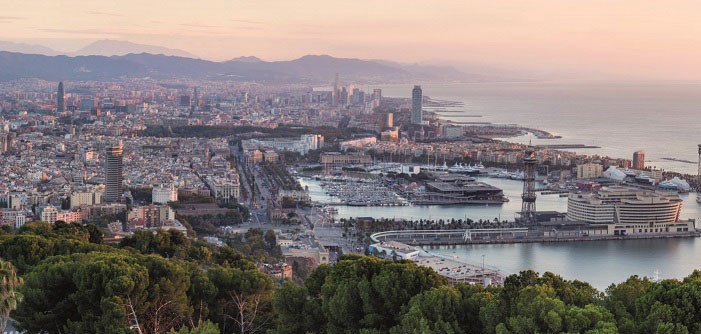Barcelona Prepares its Destination Marketing Strategy
The new roadmap must give priority to sustainable tourism, with the highest levels of social and economic positive impact.

25-04-2018 | Turisme de Barcelona
The president of Turisme de Barcelona, Joan Gaspart, alongside the Barcelona City Council councillor for Tourism, Trade and Markets, Agustí Colom, have announced the start of a process to design the "Destination Barcelona" tourism marketing strategy for the years to come. This initiative, born out of one of the proposals in the 2020 Strategic Tourism Plan, will define the strategy for tourism destination marketing through the work of Turisme de Barcelona, in a joint process with the City Council, Barcelona Chamber of Commerce and Barcelona Provincial Council.
Joan Gaspart has emphasised the wide range of interests involved in this marketing plan and its geographical scope, as well as the need to seek new forms of presenting the city, considering the changes in consumption patterns and forms of travel. Gaspart considers that this spirit of collaboration between four institutions (City Council, Chamber of Commerce, Provincial Council and Turisme de Barcelona) means "incorporating the new reality and strengthening complicity between the city and the surrounding area to create a strong image". The councillor Agustí Colom believes that it is essential that tourism management is integrated and that marketing is a key tool in this. "We must ensure that tourism manages to involve other sectors, and becomes a real focus for economic development spreading to the city and other sectors of the economy", Colom has stated.
The main objectives of the Marketing Strategy (EMTDB) can be summarised as: guaranteeing the sustainability of the destination, promoting the competitiveness of the activity while ensuring the maximum social return on investment, boosting the multiplier effect of tourism in strategic economic sectors, incentivising the integrated management of the destination and incorporating the various voices making up the destination. In short, the marketing strategy must guide the future actions of all public and private agents presenting the image of the city through their activity.
The tourism destination marketing plan is expected to be ready and implemented in its entirety within a year (6 months for diagnosis and drafting of the action plan and 6 months to implement it in the start-up phase).







